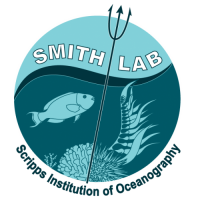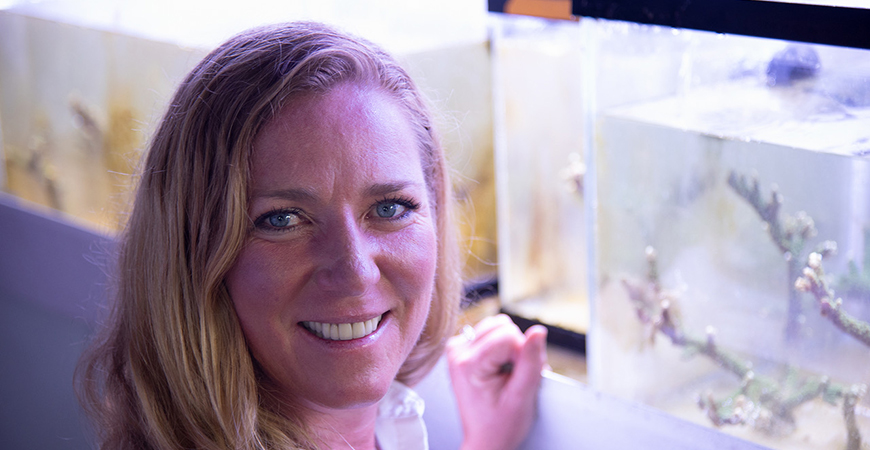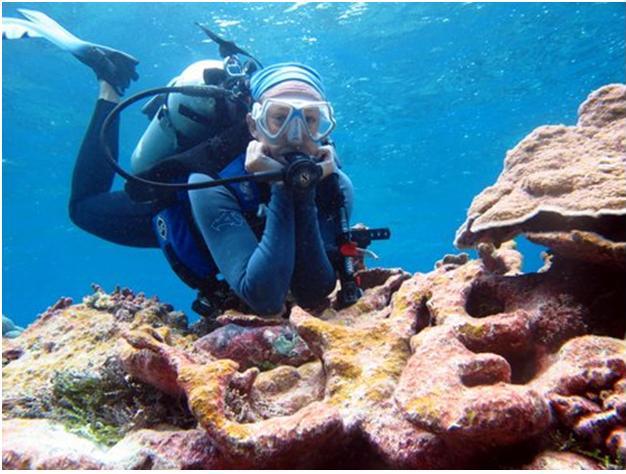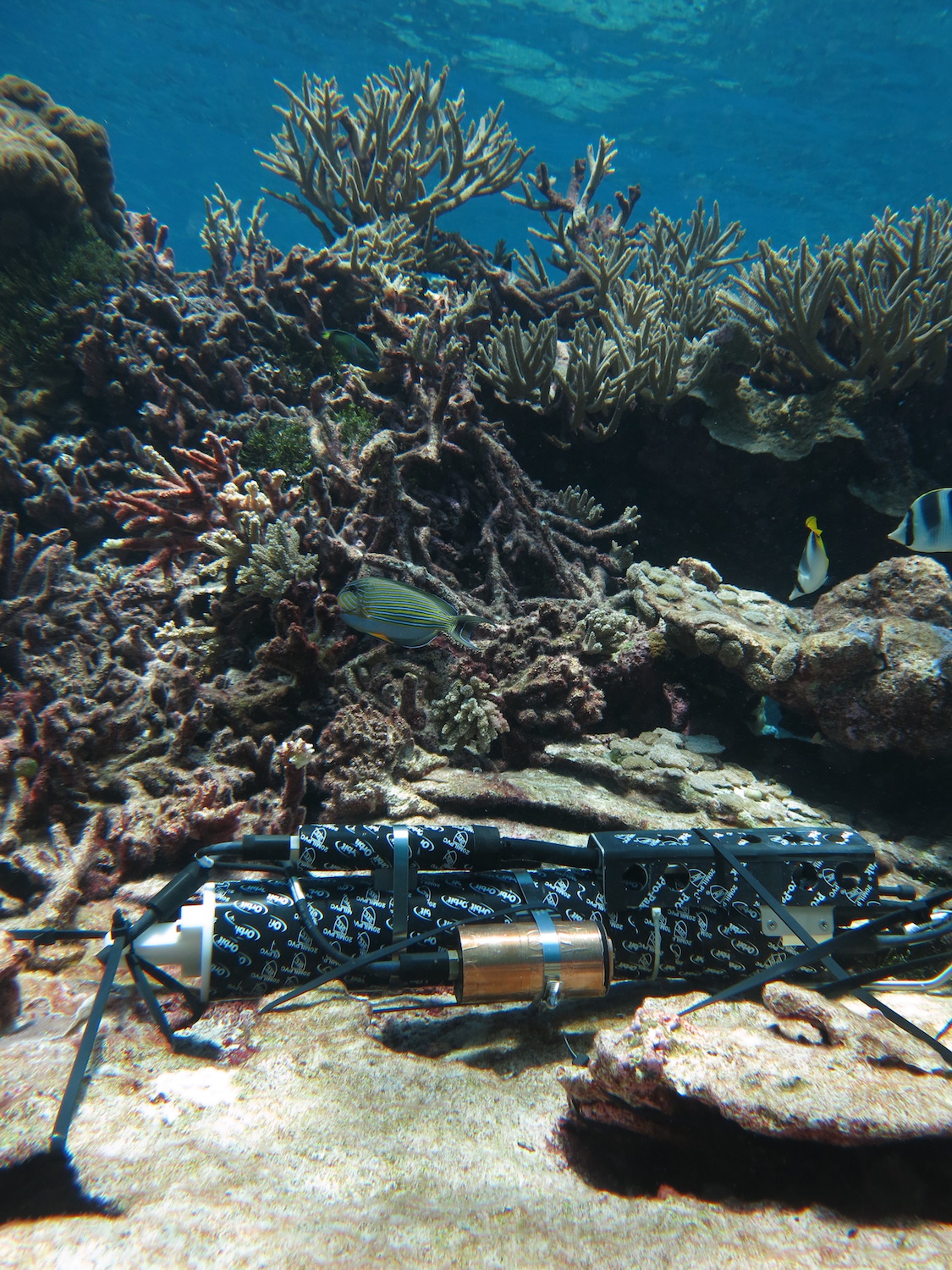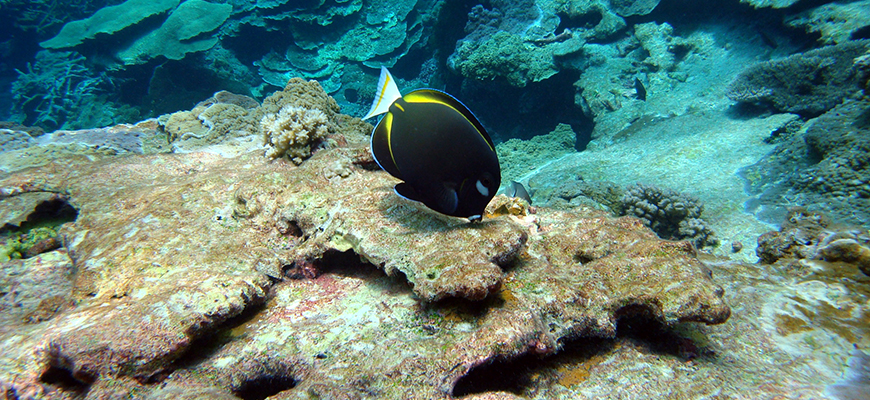Smith lab PhD candidate, Adi Khen, recently wrote a blog post for the Climate Science Alliance in which she discusses the importance of art in communicating science to a broad audience. Click here to read her post! For more great artwork by Adi, check out her website here!
Smith Lab awarded grant by the California Ocean Protection Council to study effects of sea level rise on intertidal communities
The Smith Lab was recently awarded a grant by the California Ocean Protection Council to study the effects of sea level rise on intertidal communities – that is, the life that thrives in the zone that is exposed to the air at low tide and covered by water at high tide. This project will use technology similar to that used … Read More
100 Island Challenge featured by BBC Earth
Adi Khen featured affiliate artist with Climate Science Alliance
Adi Khen, a PhD candidate in the Smith Lab, was recently featured in an interview with the Climate Science Alliance. She is the newest affiliated artist with the Alliance, and her work will be featured in their upcoming “Art of Change” show. Adi is passionate about art and using illustration to communicate complex scientific topics to a variety of audiences. … Read More
SIO Scientist Spotlight: A day in the life of Dr. Jen Smith
Dr. Jennifer Smith was recently interviewed for a Scientist Spotlight in Explorations Now. The article, “A Scientist’s Life: Dr. Jennifer Smith,” highlights Dr. Smith’s research with emphasis on the technological advances that influence how we study coral reefs. See the full interview here. Check out the interview video below:
100IC team featured in bioGraphic while on expedition in the Cook Islands
Researchers from the 100 Island Challenge team were interviewed for a piece in bioGraphic in January on an expedition to Rarotonga in the Cook Islands. The article, “Picture of Health,” published online last week, details the daily life of researchers in the field and shares the team’s optimistic view of coral reef health in areas where local managers are making waves to … Read More
Smith Lab alum, Maggie Johnson, uses her field skills to learn more about Panama’s reefs
Smith Lab Ph.D. alum, Dr. Maggie Johnson, was recently featured in the latest issue of Trópicos for her work studying coral reefs of Panama as part of her postdoctoral research with the Smithsonian Tropical Research Institute. Check out this YouTube video featuring Maggie’s postdoctoral work in Bocas del Toro, where she uses field techniques she learned in the Smith Lab to … Read More
100 Island Challenge featured at SXSW: “Saving coral reefs one pixel at a time”
This year at the SXSW festival in Austin, Texas there was a special panel focusing on the use of technology in coral reef conservation – “Saving Coral Reefs One Pixel at a Time”. Dr. Jennifer Smith spoke on this panel alongside Zack Rago, from the documentary, Chasing Coral, and Joanna Klein, a science journalist from the New York Times. … Read More
Collaboration in the news: Smith Lab assists US Fish and Wildlife Service with water quality monitoring at Palmyra Atoll
On a recent trip to Palmyra Atoll, members of the Smith Lab assisted US Fish and Wildlife Service (USFWS) with the deployment of a nearshore water quality sensor. The sensor, a Sea-Bird Electronics 16plus V2 SeaCAT Recorder with integrated WET Labs ECO-FLNTUS (say that 10 times fast!), is part of the Pacific Islands Ocean Observing System’s (PacIOOS) Water Quality Sensor … Read More
New study by SIO alum, Dr. Maggie Johnson, reveals how turf algae fare in the face of global change
Dr. Maggie Johnson, a recent Smith Lab PhD grad, recently published a study in the journal Coral Reefs revealing how epilithic and endolithic algae (that is, algae that grows on top of and beneath the surface of “rocks”, respectively) respond to increasing ocean temperature and acidification (lower pH). Samples were collected from turf-covered substrate in Moorea, and were exposed for … Read More

